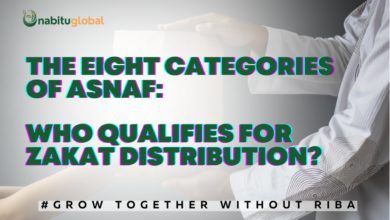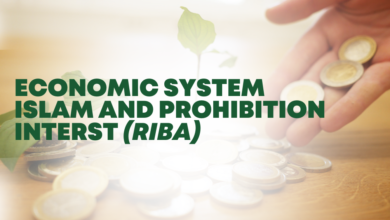Islamic Finance
-

Character of a Successful Muslim Entrepreneur
The character of a good Muslim Entrepreneurs is one that can support the sustainability of the business as our role model Prophet Muhammad ﷺ who has good characters and role models in trading or entrepreneurship such as Shidiq, Amanah, Tabligh, and Fathonah. In a business or entrepreneurship, be it trade, investment, or other types of entrepreneurship, as a Muslim, of…
Read More » -

Sharia-compliant Entrepreneurship Concept
According to (Razak, 2018) states that Islamic entrepreneurship is a system, process, and practice in running a business in an Islamic way. Islam in question includes the way of life al-deen, namely all activities needed by Muslims in living life. Meanwhile, according to (Ibn Khaldun, 2001), sharia entrepreneurship is an effort to obtain and increase income by developing property own.…
Read More » -

Definition of Gharar and Examples of Gharar in Transactions
In the realm of Sharia-compliant business transactions, we approach each deal with utmost caution, ensuring a thorough review of terms and conditions before finalizing any agreement. One of the things that is prohibited in sharia transactions is to contain elements of Gharar. This is because gharar is an element that can cause losses to one party or both, for this…
Read More » -

Why Should We Use Sharia Contract in Muamalah?
With a long history that dates back to Prophet Muhammad’s involvement in commerce at a young age, his example continues to serve as a model for ethical and successful business practices guided by Islamic principles. The concept of entrepreneurship is not a new concept, it has existed since the time of the Prophet Muhammad. Rasulullah himself is a very good…
Read More » -

How Can Prayer Affect Sustenance?
Prayer, as one of the main acts of worship in Islam, has a very important role in the life of a Muslim. Apart from being a form of obedience to Allah ﷻ, prayer also has a great influence in earning sustenance. In this article, we will explore how prayer affects one’s sustenance, with reference to the Quranic and Hadith arguments.…
Read More » -

Why Should We Start With Sharia Investing?
The Rise of Sharia Investment in Indonesia Sharia investment has been experiencing a surge in popularity, and Indonesia is no exception. The Sharia capital market, in particular, has witnessed significant growth. Data from the Jakarta Stock Exchange (IDX) reveals a staggering 90.3% increase in the number of Islamic shares, from 237 in 2011 to 451 by October 27, 2020. This…
Read More » -

The Meaning of Eid al-Fitr in Making Financial Hijrah
The Meaning of Eid Al-Fitr and Its Link to Financial Hijrah Eid al-Fitr is a much-awaited moment for Muslims after the blessed holy month of Ramadan. More than just a celebration, Eid has a deep meaning that is not only limited to spiritual aspects, but also to social aspects, including in terms of finance. For many Muslims, Eid al-Fitr is…
Read More » -

The Eight Categories of Asnaf: Who Qualifies for Zakat Distribution?
Zakat, one of the five pillars of Islam, is a mandatory charitable contribution that purifies wealth and benefits those in need. In the Quran, Allah said: “Zakāh expenditures are only for the poor and for the needy and for those employed for it1 and for bringing hearts together [for Islām] and for freeing captives [or slaves] and for those in debt…
Read More » -

Implementation of The Zakat System in The Modern Era
What is Zakat? Zakat is the third pillar of Islam, and it is one of the important pillars because relates to society and helps in the well-being public. Zakat term for taking part in treasures that have been required by Allah to be given to entitled groups to accept it. Condition mandatory Muslims giving zakat (Muzzaki) Muslim Baligh Sensible Assets owned…
Read More » -

Islamic Economic System and the Prohibition of Interest (Riba)
Based on the data quoted from the State of the Global Islamic Economy Report mec state that people Islam as much as 2 billion all over the world have using an economic system Islam in various field started from halal products to fashion and financial systems Islam reached 4.8% equivalent with 3.1 trillion USD. Based on this data that use…
Read More »

